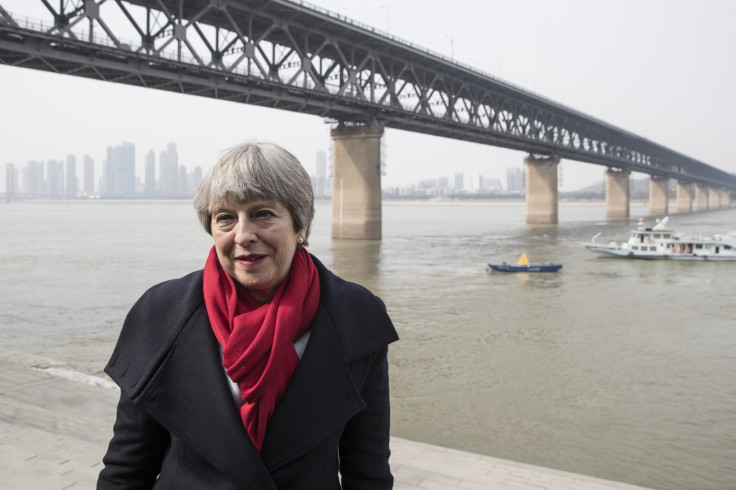Theresa May digs her heels in: Tory civil war reaches new heights with Ruth Davidson seen as only hope
Boris, Amber Rudd and David Davis seen as more divisive than May

Theresa May has sought to warn off any potential leadership challenges by saying that she will fight on to the next general election in 2022.
The prime minister, speaking in China, said she was "not a quitter", adding that there was "a long-term job to be done."
She didn't address the ongoing political infighting among the Conservatives back in Westminster, which has seen the likes of Liam Fox being forced to call off attacks made by Nicky Morgan and Jacob Ress-Mogg on the chancellor Philip Hammond, amid Brexit disputes.
May said that the government's job was "about getting the best Brexit deal, it's about ensuring that we take back control of our money, our laws, our borders, that we can sign trade deals around the rest of the world."
It comes amid the latest poling from YouGov/WPI, which found that although the majority of Tory voters (69%) felt she should remain in her post, 18% called for her to stand down with the remaining 13% unsure about her future,
These figures are largely similar to the numbers YouGov revealed in November 2017, suggesting that the current Tory turmoil could be almost entirely internal and not one that the public are concerned about.
But the data also found that the Cosnervative's search for a new leader could be tough.
While Theresa May is seen as the best option throughout the current Brexit negotiations, the survey of 1,669 Britons found that compared to May's performance at the 2017 general election, Boris Johnson, David Davis and Amber Rudd would all underperform in comparison.
The three would all lose either nine per cent or 10% from May's 42% in 2017.
However, the polls also found one suitable replacement for May – Scottish Tory leader, Ruth Davidson.
Davidson, currently an MSP, has overseen a revival for the Tories north of the border.
WPI Strategy Director Nick Faith said: "All the other potential candidates – except for Ruth Davidson – are seen as more likely to drive support away from the Conservatives.
"Davidson comes out well as an attractive proposition. Her credentials as a future leader of the party will have been boosted by this poll."
The data suggested that she was the only one who could replicate the 42% that was managed in the snap 2017 vote.






















